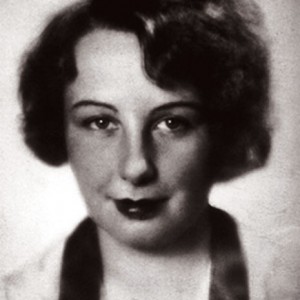Gilgi
Irmgard Keun
Translated by Geoff Wilkes
Melville House Books
Paperback; 229 pages; $16.00 US/CAN
In the spring of 2011, Melville House published as part of their Neversink Library a compact but tremendously potent little novel by German author Irmgard Keun called After Midnight. First published in 1937 as Nacht Mitternacht, After Midnight is Keun’s third novel, written in exile after the Nazis banned her books and effectively prevented her from further publishing. A tale of censorship and acquiescence, of nationalistic fervor and vile human pettiness, of disappeared persons, of vengeful murders and polite suicides, After Midnight contemplates above all the moral obligations of a writer in times of government oppression and blind patriotism.
Keun secreted herself back into Germany in 1940, protected by rumors of her demise, and lived long enough to see her novels receive renewed critical attention in the 1970s and ‘80s. Her life is easily romanticized (defying the Nazis, wandering in exile, staging her own suicide), but Keun’s time away was no holiday. As an aging writer explains to the protagonist during the party scene that is After Midnight’s climax, “You’ll find any other country is smooth and hard as a chestnut shell. You become a trial to yourself and a burden on others. For the roofs you see are not built for you… And the language you hear is not spoken for you.”
Now Meville House has released Keun’s debut novel, the 1931 bestselling Gilgi, ein von uns. Translated by Geoff Wilkes (and conspicuously missing the “one of us” subtitle), this is the first time Gilgi has been fully published in English. The eponymous Gisela – she prefers the name Gilgi because “the two i’s are better suited to slim legs and narrow hips like a child’s” – inhabits a seemingly free Germany, a Cologne that is worlds away from the party demonstrations and concentration camps spoke of in After Midnight. Still, a painful recession is bankrupting whole companies and ruining personal fortunes, the Weimar government is clamping down on individual freedoms, and all the while gangs of communists and Nazis are beating each other up in the streets. Keun shows complete awareness that something terrible was about to happen, even if Gilgi, not much interested in politics, doesn’t seem to care.
What does interest Gilgi is ambition. Aged only twenty years at the novel’s outset, Gilgi works as a typist by day, studies in a rented room by night, and only ever allows herself some fun when she feels she’s earned it. Any activity she deems unproductive or unenjoyable is simply “a pointless waste of time, and completely incompatible with Gilgi’s character and her conscience.” She is quite sure, furthermore, that all her successes are a direct result of such diligent work; that the unemployed and the poor, “these people who don’t work, ambling so idiotically, frivolously, dozily through their lives,” simply aren’t trying hard enough.
Gilgi’s work ethic, her independence, and even her boyish-but-alluring body are all indicative of Gilgi’s life as a New Woman, a concept popularized by Henry James but prevalent in German society in the wake of the First World War. The German New Woman of the Weimar era was – according to popular magazines of the time like Die Dame and Uhu – intelligent and athletic, sociable and sexually liberated, while still being beautiful and refined.
Gilgi’s (perceived) firm grip on her life’s trajectory begins to fall away on the morning of her 21st birthday, when her mother informs her she was adopted as a baby from a poor seamstress named Frau Täschler. Täschler, a “faceless” old woman whose poverty Gilgi finds repulsive, reveals that Gilgi is in truth the daughter of the enormously wealthy Frau Kreil, though the birth was hidden away to avoid a scandal. But before Gilgi can dissolve into an absurd melodrama of confused identity and lineage, the protagonist is distracted by that most unrelentingly force of destruction: love.
Enter Martin Bruck, world-traveling writer and romantic adventurer; a man of forty-three years who scorns money and finds steady employment far too quotidian for his taste. Gilgi of course falls desperately for Martin, in a fit of passion that rips her away from her work, from her ambitions, and ultimately from her once-firm sense of self. Gilgi’s lover, alternately worshipful and condescending, wastes no time in imposing upon her his image of an ideal woman.
While she’s no stranger to flirtation or male attention, Gilgi learns for the first time what an absolute chore it is to care deeply for another human being. “The hours of happiness come at a high price. The bill is presented promptly,” she muses. “Pay it! With what? With fear and twinges of pain. No, I don’t think the price is too high, I just find the currency strange.” Gilgi wants her love to fit into a rational economic system, a scheme she can control or at least plan for, but finds sorely that one cannot make a budget of one’s desires.
Martin comes across as a bit of a type, the Writer, what with his penchant for swapping drunken stories with old sailors, dreaming up romantic narratives for backstreet curio shops, and punctuating long periods of inactivity with furious, flittering frenzies of writing. (Gilgi, desperate to justify the relationship to herself, lies to friends about the frequency of these frenzies, “then she believes it, because she wants to believe it.”) Keun is expert at charting of his and Gilgi’s relationship – as the currents of euphoria flow alongside terror and anxiety and self-doubt.
In fact, many of Gilgi’s supporting cast bear resemblance to common character tropes. From the beautiful and carefree artist Olga, to the brooding and sexually frustrated off-brand Raskolnikov named Pit, to Gilgi’s three mothers (working-class, bourgeois, and wealthy), Keun’s characters feel oddly familiar. But this is precisely the point. Just as Gilgi is a (fictional) living product of New Woman ideals, so the other characters may be seen as reproductions of tropes from other serialized popular novels. The connection is explicit: all the characters, most evidently the three mothers, read the very magazines they’re being pulled from. “My beautiful love shouldn’t turn into a kind of Strindberg play,” opines Gilgi, and Keun here knows exactly what sort of joke she’s making.
Of course it’s nothing new to have fictional characters read and reference fiction. Any believable facsimile of the world will include its own references to novels and films, and the rather fun irony here is that nothing is more life-like than a human being comparing her life to a work of fiction. But Keun’s efforts are particularly pointed. When Gilgi finally meets the true mother, locked away behind her wealth in labyrinth of chambers and antechambers, she is described dismissively as a “title character in a mediocre magazine serial.” Gilgi insists that Frau Kreil explain herself, “so that you become a living being for me.” Kreil, shocked into silence by the meeting, says nothing. So Gilgi constructs Kreil’s narrative herself, and a “magazine-lady” she remains.
Gilgi herself is a remarkably complex protagonist, occasionally naïve but also fiendishly clever, particularly in her understanding what it means to be a young woman in a male-dominated society: “the shape of Gilgi’s little breasts is clearly visible under her blue-gray velvet dress, convincing Herr Reuter that Gilgi is ‘the’ woman who understands him.” Even when she is overtaken by desire for Martin, she never ceases being cognizant of what love is costing her: “What I see in the mirror is what someone else has made out of me.” Martin rarely allows Gilgi to have her say, casting doubt as to whether Martin can really see her as “a living being.”
The novel is told in a fluid third person, but so close is the narrator to Gilgi’s thoughts that “she” and “I” are used almost interchangeably. Certain of her thoughts and actions are described from without, others as if Gilgi herself were the narrator (a version of free indirect discourse), and – increasingly so as she becomes more disconnected from her firm concept of self – the action is described even with the universal “you.” Some of Gilgi’s most profound revelations about what fierce desire can bring upon a human animal (“…and deep down you sense the purpose of pain and inevitable loss…”) are directed as much at the reader as they are at Gilgi herself.
Keun brilliantly depicts every change in Gilgi’s constantly evolving understanding of her love for Martin; the narratives by which she justifies her actions, the cynical resignations to self-loathing. Gilgi can casually joke to a friend in one moment that she has “been stung by a wild hormone,” and spend a sleepless, tormented night waiting for Martin to come home in the next. Keun here hints at something her protagonist slowly begins to suspect. Gilgi, though she believes as we all do that she is a cohesive, self-motivated individual with a consistent identity, may actually be something far more fragmented.
Beneath her athletic figure and her daily routines, Gilgi is an absolute mess of warring desires. “There are two layers in me,” she realizes, “and the upper one, it dictates – everyday words, everyday actions-little girl, little machine girl, little clockwork girl- the lower layer underneath it-always wanting, always searching, always longing…” She asks, finally, “What—am—I—really?” This, then, is the real horror of love: not that it weakens our resolve or compels us to compromise our individual interests and ideals, but that it forces us to reconsider the commonplace notion that we are firm, consistent entities. The concept of a singular Gilgi, a young woman who is the same from day to day, or even from moment to moment, is revealed to be an illusion.
All the while, Gilgi undergoes a second curious transformation, one that parallels her growing dependence on Martin. She begins to stray from a Randian self-importance and acquires a slightly more liberal, sympathetic view of her fellow man. Having lost a concrete knowledge of her origins, Gilgi considers that her successes stem as much from her bourgeois upbringing as they do from sheer hard work. As a result of the hemorrhaging economy (and of love-induced slothfulness), Gilgi also comes face to face with real poverty. The poor continue to repulse her, but it’s more out of a subconscious understanding of belonging to poverty than a feeling of being above it. And finally, the protagonist’s weakening selfhood makes her more likely to experience her life not as Gilgi, but as a universal you. It’s worth noting that while the socialist Pit is arguably more interested in the welfare of the common man, Gilgi makes the firm distinction between “people” as an abstract intellectual concept and “human beings,” real knowable entities with thoughts, feelings, desires, and pains.
Crisis strikes, and Gilgi is shocked into abandoning Martin and reasserting her independence. On a train platform waiting to depart for Berlin, Gilgi assures Pit that she will inevitably prevail. “There’s a whole heap of people I can beat,” she says, “because my will is stronger and more durable.” And yet she’s also learned humility, “because you belong in the overall structure, you’re not created to stand outside it.” This final conflict – between a human sense of belonging to the crowd while simultaneously feeling that she alone stands above and apart – perhaps confirms more than anything that Gilgi really is ein von uns.
—Adam Segal
———————————-
Adam Segal is a writer and culinary professional in Portland, Oregon. He graduated from the University of Iowa some time ago, and has since interned for Graywolf Press and contributed extensively to Whole Beast Rag magazine, among myriad other adventures.


